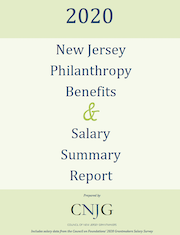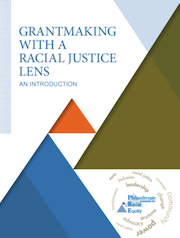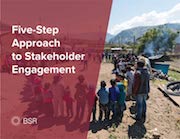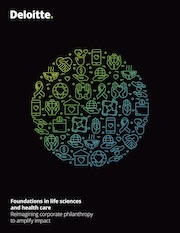Site Search
- resource provided by the Forum Network Knowledgebase.
Search Tip: Search with " " to find exact matches.
A sample conflict of interest form for independent private foundations.

The 2020 New Jersey Philanthropy Benefits & Salary Report provides a valuable benchmarking resource. Developed and compiled for CNJG members exclusively, the report presents comprehensive benefits data specific to New Jersey's grantmaking community, alongside data from the Council on Foundations' annual salary survey. Produced every three years, this benchmarking report is a highly valued benefit of your membership in the Council of New Jersey Grantmakers. Thank you to the CNJG members that completed the benefits survey earlier this year that enabled us to produce this report.
The first section, 2020 Benefits Summary Report, includes benefits data for the 2020 calendar year and covers employment, leave benefits, insurance benefits, and more. We are delighted to also present for the first time in this triennial report, demographic data on the boards and staffs of those that responded. The second section, 2020 Grantmaker Salary Tables: New Jersey, Mid-Atlantic and National Data provides data on compensation across a wide range of positions and grantmaking entities. Thank you to the CNJG members that completed the Council on Foundations’ annual survey on salaries that enabled us to produce this section of the report.
Eastside High School in Paterson sits in the middle of a struggling neighborhood, in a city where 25% of the residents are living below the poverty line, according to the 2020 U.S. Census.
Paterson’s poverty rate is more than twice the state average of 10%, which makes the school, built in 1926, a refuge — and now a resource.
On Thursday, Montclair State University president Jonathan Koppell came to Eastside with a $1 million grant and a vision: to make the school into a community hub, offering free meals, health care, and mental health counseling, not just to the 2,000 students, but to their families as well.
The initiative is called One Square Mile, and it is being seeded with a $1 million grant from the Geraldine R. Dodge Foundation. The program was developed by Koppell during his tenure as Dean of the Watts College of Public Service and Community Solutions at Arizona State University, which worked with the Phoenix-area community of Maryvale to address poverty.
The Philadelphia 76ers, looking to make an even greater impact in the community in which they train, are making a donation of $120,000 to the Camden County Police Department, the largest private donation ever.
The donation, made through the Sixers Youth Foundation, will fund youth fitness initiatives throughout Camden city, as it will be used to enhance and expand several programs in the Camden County Police Department’s Village Initiative, including the open gym and resource nights, Camden officials said.
Camden County Commissioner Director Louis Cappelli was floored by the gesture — but noted it follows the effort the team has been making for some time.
“From the start, this agency has been focused on community engagement and facilitating a lifelong dialogue in order to become part of the fabric of the city,” he said. “This investment by the Sixers underscores the importance of the work we do with our residents on daily basis with a focus on our youth in Camden.
“I want to thank them for walking the walk and being an important part of our village here in Camden County.”
A CNJG member queried our listserves on policies regarding: 1) number of vacation days for new full-time employees; 2) paid time off (PTO); and 3) working remotely. CNJG compiled the answers from responding members.

In the 12 years since the original Grantmaking with a Racial Equity Lens guide was published the country’s political, economic, and cultural landscapes have undergone multiple, dramatic changes. Public engagement and organizing against racism has risen to historic levels and we've seen racial justice concepts take root in such mainstream contexts as Washington Post articles on White privilege and wider use of the phrase “systemic racism.” And funders have worked hard to keep up. In response to these conditions, PRE has produced an updated guide. The daily practice of using a racial equity lens in social change as well as in grantmaking has established a baseline understanding of structural racism and has led to new insights, definitions, and nuances.

In 2019, the landscape of digital communication, international agreements and investor expectations makes stakeholder engagement more important than ever: Digital and social media amplify voices of the public, including civil society organizations; international agreements such as the UN Guiding Principles and Sustainable Development Goals have been established and globally accepted; and investors are significantly more focused on company approaches to environmental, social, and governance (ESG) issues, which in turn necessitate consideration of all stakeholders, not just shareholders.
First published in 2011, this updated guide from BSR is a response to developments over the last seven years, all of which necessitate a far clearer focus on stakeholder trust by corporations. This report aims to provide a comprehensive toolkit that incorporates the latest thinking while maintaining the clarity and practicality of their five-step approach.

The role of corporate philanthropy is at a pivotal point as executive, employee, and customer expectations shift and stakeholders increasingly expect businesses to value and invest in societal welfare. In this rapidly evolving environment, there is opportunity for corporate foundations to reevaluate traditional approaches to grant making, social responsibility, and engagement with counterpart organizations.
The life sciences and health care industry provides an exceptionally compelling illustration of macrophilanthropic trends and possibilities. Although all industries can constructively transform existing corporate philanthropy models, the life sciences and health care ecosystem is experiencing dramatic increases in consumer engagement, perceived social responsibility, and global attention that make more thoughtful, strategic philanthropic investment especially urgent. In this paper, they examine the current health ecosystem, evolving stakeholder expectations, the unique position of life sciences and health care foundations to effect critical change,and alternative engagement models with demonstrated track records of success on an international scale.
